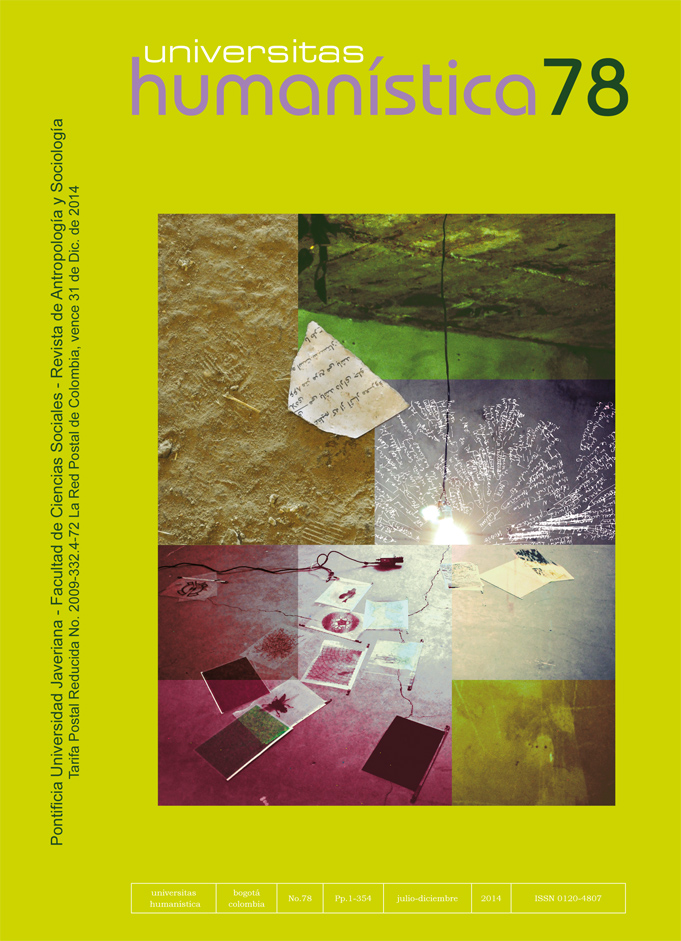Abstract
In this paper we reflect on the motivations, agenda and commitments set within the context of the firstinternational seminar “Afro female Conspiracy: Rethinking feminisms from diversity” held betweenJune 24th and 25th, 2011 in Cali, Colombia. In this scenario, it was proposed to understand Afrodiasporicfeminism as a process, a research agenda, a strategy of social mobilization, a practice ofsolidarity and a restorative justice claim. We establish connections between the proposals discussedin this scenario and a number of proposals on diasporic feminism formulated in Latin America, indialogue with the U.S. black feminism and African feminism.

This journal provides immediate open access to its content on the principle that making research freely available to the public, encourages greater global exchange of knowledge.
The journal Universitas Humanística is registered under a Creative Commons Attribution 4.0 International Public License. Thus, this work may be reproduced, distributed, and publicly shared in digital format, as long as the names of the authors and Pontificia Universidad Javeriana are acknowledged. Others are allowed to quote, adapt, transform, auto-archive, republish, and create based on this material, for any purpose (even commercial ones), provided the authorship is duly acknowledged, a link to the original work is provided, and it is specified if changes have been made. Pontificia Universidad Javeriana does not hold the rights of published works and the authors are solely responsible for the contents of their works; they keep the moral, intellectual, privacy, and publicity rights.
Approving the intervention of the work (review, copy-editing, translation, layout) and the following outreach, are granted through an use license and not through an assignment of rights. This means the journal and Pontificia Universidad Javeriana cannot be held responsible for any ethical malpractice by the authors. As a consequence of the protection granted by the use license, the journal is not required to publish recantations or modify information already published, unless the errata stems from the editorial management process. Publishing contents in this journal does not generate royalties for contributors.


